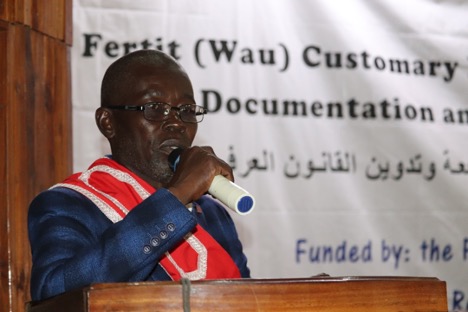
UN receives $14 million to support over 260,000 victims of violence, flooding
The United Nations Humanitarian Chief Martin Griffiths released 14 million U.S dollars from the Central Emergency Response Fund (CERF) to support the provision of direct humanitarian assistance to 262,521 people in South Sudan who have been affected by increased violence and severe flooding.
“This funding will support reducing people’s vulnerability and protection risks through activities implemented by the United Nations humanitarian agencies in South Sudan, including IOM, UNICEF, UNHCR, WFP and WHO, while ensuring that humanitarian assistance reaches people in need as quickly as possible,” said Sara Beysolow Nyanti, Humanitarian Coordinator for South Sudan in a statement on Thursday in Juba.
She disclosed that women, girls, the elderly, persons with specific needs, and those who stayed behind in hard-to-reach areas due to mobility constraints are some of the targeted groups.
Nyanti emphasized the need to prioritize people with the most acute needs among internally displaced people and host communities.
“People are going through unimaginable suffering. We cannot leave behind the most vulnerable,” she said.
It noted that South Sudan’s humanitarian crisis has been underfunded across all humanitarian interventions leaving millions of people at risk.
The UN agencies recently requested for 1.7 billion dollars to help tackle unfolding dire humanitarian crisis and also provide protection service for affected people in 2023.
“We need long-term solutions to close the rising funding gaps, and pave the way towards development,” said Nyanti.
It said the implementing agencies will use a targeted area-based approach to ensure that the much-needed support reaches people with the highest severity of needs.
Nyanti revealed that people in five states across South Sudan (Unity, Upper Nile, Northern Bhar el Ghazel, Jonglei and Warrap States) and in the Abyei Administrative Area will benefit from the newly allocated humanitarian funding.
The funding will enable the scale up of existing multipurpose cash programmes ensuring critical life-saving services including protection, health, education, water, sanitation and hygiene activities for the people most in need.
Affected people have experienced multiple shocks which have led to secondary and tertiary displacements with increased protection risks, loss of livelihoods, and the erosion of previously provided support.
It added that at least 15 percent of these funds will be allocated to national NGOs including women-led organizations who are partners of the receiving UN system members.
The funded projects will mainstream protection, gender and inclusion sensitivity, and collective efforts for accountability to the affected population in the response.



































